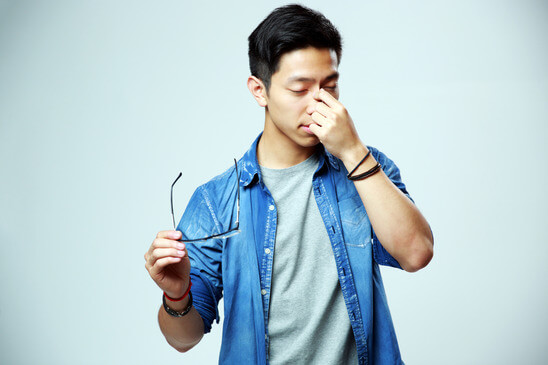Are you one of those poor souls that is constantly blinking, rubbing and massaging your eyes simply to get rid of that chronic dryness? Dry eye syndrome, or DES, is a medical condition that includes frequent scratchiness, burning and dryness in the eyes that is difficult to control. Here are some tips for rehydrating your eyes and giving yourself some much deserved relief.
- Eye drops: Known as “artificial tears,” prescription eye drops aid in both lubricating the eye to relieve redness and that dry, scratchy feeling and in also helps in increasing natural tear production. Keep in mind that artificial tears should not be used while wearing contact lenses. You must way at least fifteen minutes or longer before placing the lenses back in your eyes. Make sure that you talk to your optometrist to find out which prescription eye drops would be the best fit for your needs.
- Wear sunglasses: Not only do sunglasses help shield your eyes from dangerous ultraviolet rays, they also protect them from dust and wind that could be contributing to DES.
- Use air filters and humidifiers: Air filters help eliminate extra dust and other particle irritants that may be lurking around. Humidifiers add moisture to the air and can help relieve DES symptoms.
- Punctal plugs: In extreme cases when other remedies are not working, your optometrist may recommend punctal plugs. These miniscule devices are inserted directly into the ducts in your lips and keep eyes moist by slowing down tear drainage away from your eyes.
- Drink plenty of water: In cases of DES, simple precautions such as drinking plenty of water and other fluids help to keep eyes moist.
- Check your medications: Sometimes, prescription medications such as antihistamines, decongestants, blood pressure supplements and antidepressants can increase eye dryness or in some case even be the cause of it. Consult your doctor to see if this is a possible side effect and what steps you can take to alleviate dryness.
- Consider blepharitis: Blepharitis is a condition that causes inflammation in the eyelids. Ruling this out as a factor can help put you on the right track.
- Avoid smoky/dry climates: Being mindful of your surroundings. People prone to DES should avoid places with heavy air pollution, smoke or anywhere that is typically dry most of the year.
- Blink regularly: This may sound silly, but consciously remembering to blink more often will help keep your eyes hydrated.
What else should I do if I have DES?
The first step you should take is to call and schedule an appointment with your local eye doctor. An optometrist can take a look at your patient history, conduct an external examination of your eye, evaluate the condition of your cornea and eyelids using careful magnification and will even perform a measurement of the quality and quantity of your tears to see if there are any abnormalities. After these tests, your doctor will suggest a prescription or other offer other information that will aid in lessening your symptoms.




